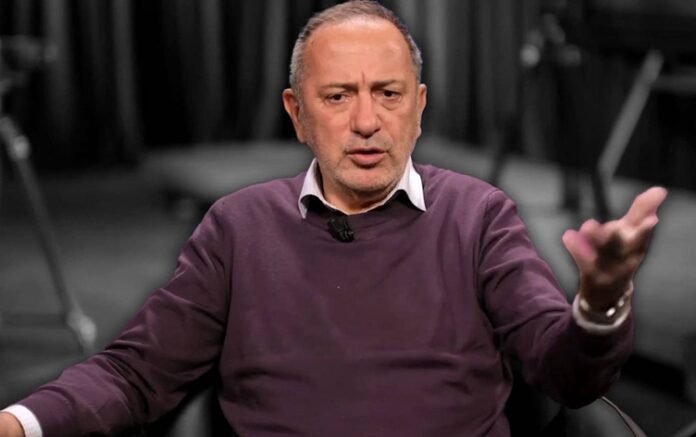A Turkish court has ordered the blocking of access to the YouTube channel of journalist Fatih Altaylı, who is currently being held in prison, Turkish Minute reported.
The decision was made by the İstanbul 6th Criminal Court of Peace on Thursday, at the request of the İstanbul Chief Public Prosecutor’s Office, citing national security, public order and the prevention of crime under Article 8/A of Turkey’s Internet Law No. 5651.
The ban was confirmed by the Freedom of Expression Association, which said the order had been delivered to internet service providers. As of Friday, however, Altaylı’s channel was still accessible from Turkey, and YouTube had not yet implemented the decision.
The court order came just weeks after Altaylı’s June 20 broadcast, in which he commented on a public opinion poll indicating that 70 percent of the Turkish public opposed allowing President Recep Tayyip Erdoğan to remain in power for life. He said, “The Turkish people love the ballot box. They want the power to be in their hands,” and referenced Ottoman history by saying the people had overthrown or executed sultans they no longer accepted.
Authorities accused Altaylı of issuing threats against the president, and he was arrested on June 21. He denies the charges, saying his words were misrepresented.
The arrest of journalists due to their professional activities is frequent in Turkey, which has been suffering from a poor press freedom record for years.
Reporters Without Borders ranked Turkey 159th out of 180 countries in its 2025 World Press Freedom Index, in between Pakistan and Venezuela.
Altaylı’s channel, which had nearly 1.65 million subscribers, was among the most watched in Turkey.
A July 2025 report by Marketing Türkiye and Media Monitoring Center listed him as the most viewed journalist on YouTube with 28 million monthly views, 634,000 average views per video, 2.2 million likes and 139,000 comments. His channel has led the platform’s rankings since March 2025.
The channel continued broadcasting after his arrest, often featuring an empty chair in his place. The broadcasts included appearances by prominent guests such as main opposition Republican People’s Party (CHP) leader Özgür Özel and CHP deputy chair Ali Mahir Başarır as well as other journalists and celebrities. The format has drawn significant attention and millions of views.
The video cited in the court order featured a letter from Altaylı, read aloud and discussed by guests. In the letter he claimed that Nationalist Movement Party (MHP) leader Devlet Bahçeli had once sent a poem to Abdullah Öcalan, the jailed leader of the outlawed Kurdistan Workers’ Party (PKK), who has been imprisoned on İmralı Island since 1999. Prosecutors said the content of the video posed a threat to national security, and legal experts believe a separate investigation may be opened over the statement.
Bahçeli had drawn attention in October by publicly calling for Öcalan’s release, signaling a shift that culminated in a rare peace initiative. Öcalan later called on the PKK to lay down its arms, and the group responded by symbolically burning weapons in June.
The MHP leader’s change in tone toward the PKK and Öcalan sparked widespread debate, given his and his party’s long-standing opposition to both.















